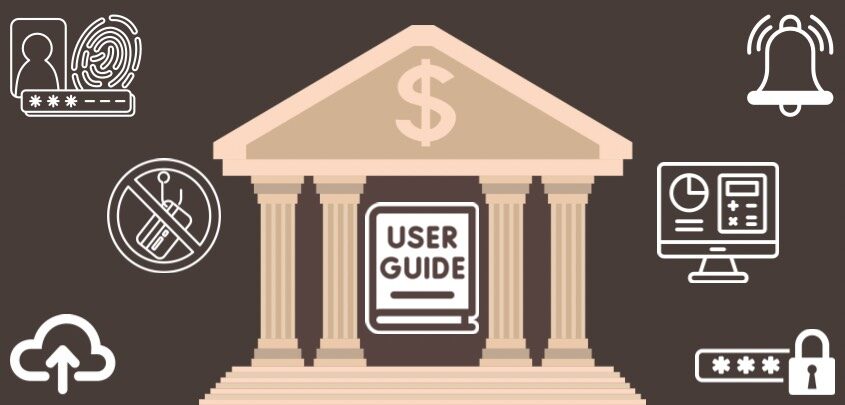
07, May, 2024
Safe Online Banking Practices:A User’s Guide
In today’s digital age, online banking has become an integral part of managing finances conveniently. However, with the convenience comes the responsibility of ensuring the security of your financial information.
Here’s a user’s guide to safe online banking practices to help you protect your money and personal data.
Use Strong and Unique Passwords:Using strong and unique passwords is essential for securing online banking accounts. It’s vital to avoid using easily guessed information, like birthdays or common words.Instead,incorporate a combination of uppercase and lowercase letters, numbers, and symbols to enhance password security.
Enable Two-Factor Authentication:Many banks offer two-factor authentication as an extra layer of security. Enable two-factor authentication on your online banking accounts to add an additional step for verifying your identity, usually through a code sent to your mobile device.
Keep Your Devices Secure:Maintain the security of devices used for online banking, such as computers, smartphones, or tablets. Install antivirus software, ensure regular updates for the operating system and applications, and refrain from conducting banking transactions over public Wi-Fi networks.
Monitor Your Accounts Regularly:Make it a habit to regularly check your bank statements and transaction history.Promptly notify your bank of any suspicious or unauthorized transactions.
Backup Important Data:Regularly backing up important financial data and documents stored on devices is essential. Utilize secure cloud storage or external drives with encryption to ensure data protection in case of device loss or theft.
Limit Account Permissions:Regularly review and limit permissions granted to third-party apps or services that access your banking information. Only authorize trusted and necessary applications to minimize exposure to potential risks.
Set Account Alerts:Utilize the account alerts provided by your bank. Set up alerts for transactions, balance thresholds, and account changes to swiftly identify and respond to any suspicious activity.
Keep Personal Information Private:Be cautious about sharing sensitive information, such as account numbers, passwords, or PINs, through email, text messages, or social media platforms. Use secure channels for communication with your bank.
Use Encrypted Connections:Make sure your online banking sessions occur through secure, encrypted connections. Verify the connection’s security by checking for “https://” in the website URL and a padlock icon in the address bar.
Be Cautious of Phishing Scams:Beware of phishing scams where fraudsters try to trick you into revealing your banking information through fake emails, messages, or websites. Always verify the authenticity of communications from your bank before clicking on any links or providing personal information.
Secure Your Mobile Banking:For mobile banking apps, ensure your device has a robust password or biometric authentication. Activate app lock features and regularly update both your mobile operating system and banking apps to their latest versions.
Practice Safe Online Shopping:When making online purchases, use reputable and secure websites. Avoid entering banking information on unfamiliar or suspicious websites to prevent potential fraud.
Be Skeptical of Unsolicited Offers:Exercise caution regarding unexpected emails, phone calls, or messages purporting to be from your bank or financial institutions. Independently confirm the legitimacy of such communications before proceeding or sharing any information.
Use Secure Networks: When accessing your online banking accounts, use a secure and private network. Avoid using public Wi-Fi networks for sensitive transactions unless you use a reliable virtual private network (VPN) for added security.
Educate Yourself:Stay informed about the latest cybersecurity threats and banking scams. Educate yourself about safe online banking practices and teach your family members, especially children and elderly relatives, about online security measures.
By adhering to these secure online banking practices, you can reduce the risks linked to online transactions and safeguard your financial information from cyber threats. Remember, staying vigilant and implementing proactive security measures are crucial for a safe and protected online banking experience. Integrate these supplementary safe practices into your online banking routine to bolster the security of your financial transactions and shield yourself against cyber threats.
